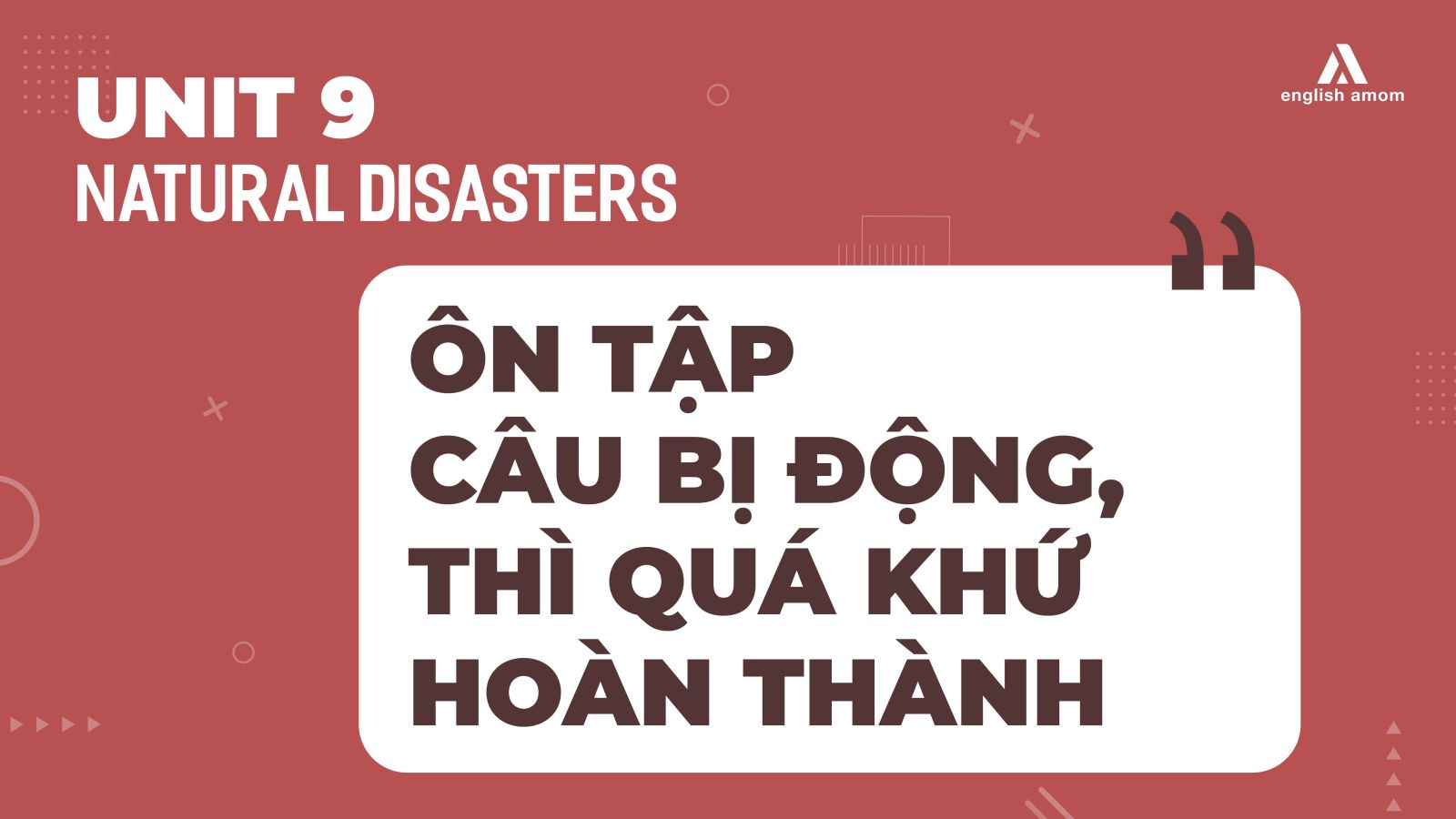
► Kênh hỏi đáp và giải thích thắc mắc kiến thức MIỄN PHÍ → truy cập LINK NHÓM: ENGLISH AMOM
► Kênh YOUTUBE hệ thống toàn bộ bài giảng CLIPS: truy cập LINK: ENGLISH AMOM CHANNEL
► Kênh TIKTOK: ENGLISH AMOM
I. LÝ THUYẾT
A) Ôn tập câu bị động
Xem lại lý thuyết và hoàn thành các bài luyện tập về câu bị động: CÂU BỊ ĐỘNG
B) Thì quá khứ hoàn thành
1) Công thức
| Công thức | Ví dụ | |
| Thể khẳng định |
S + had + Past participle |
Most people had left before the building collapsed. |
| Thể phủ định |
S + had not/ hadn't + Past participle |
He hadn’t moved to a safe area when the tsunami struck. |
| Thể nghi vấn |
Had + S + past participle? Had + S + not + past participle? Hadn't + S + past participle? * Short answers: Yes, S + had. No, S + hadn't. |
Had they spent the night in the flooded area before rescue workers arrived? Yes, they had. |
2) Cách dùng
► Diễn tả hành động hoặc trạng thái đã xảy ra và đã kết thúc, hoặc kéo dài đến trước một thời điểm trong quá khứ.
Ex: People had moved to safe areas by 11 o’clock last night.
► Diễn tả hành động đã xảy ra và kết thúc trước một hành động khác trong quá khứ. (Hành động xảy ra trước dùng quá khứ hoàn thành, hành động xảy ra sau dùng quá khứ đơn).
Ex: When I opened the washing machine, I realized I had washed my IPhone.
II. BÀI TẬP
2) Complete the sentences using the correct passive form of the verb in brackets( Page 29 )
1. Debris (scatter)....................across the countryside by the strong winds last night.
2. Ten new houses (build).................... in the town every year.
3. Residents of flooded villages (take)....................safe place last night.
4. In the future, natural disasters (predict)....................accurately with the help of technology.
5. Food and medical supplies (deliver)....................later this afternoon.
ĐÁP ÁN:
|
1. was scattered |
2. are built |
|
3. were taken |
4. will be predicted |
|
5. will be delivered |
|
5) Complete the sentences by putting the verbs in brackets into the simple past or past perfect( Page 30 )
1. Most people (leave) ..................before the volcano (erupt)..................
2. By the time we (arrive).................. at the canyon, it (stop)..................snowing.
3. They (spend)..................the night in the flooded area before help (arrive)..................
4. Simon (get)..................lost because he (not take)..................a map with him.
5. I (find)..................my pen after I (buy)..................a new one.
ĐÁP ÁN:
|
1. had left; erupted |
2. arrived; had stopped |
|
3. had spent, arrived |
4. got; hadn’t taken |
|
5. found; had bought |

